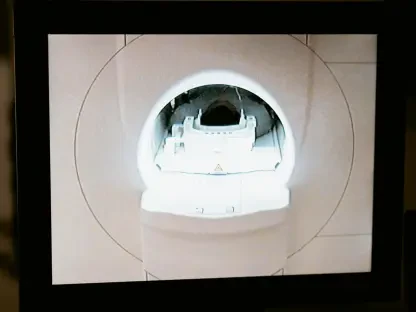Healthcare decision-making has entered a new legal framework in Arizona, where concerns over artificial intelligence (AI) in medical insurance have been addressed through recent legislation. Governor Katie Hobbs has signed a law mandating that licensed professionals must oversee the denial of healthcare insurance claims based on medical necessity. This regulatory move comes amidst rising apprehensions among healthcare providers about the role of AI in determining critical insurance outcomes. A survey by the American Medical Association highlights these concerns, revealing that 61% of physicians fear AI’s increased involvement in prior authorization denials could lead to preventable harm. The necessity for human judgment in healthcare decisions, especially when lives are at stake, underscores this law’s importance. As AI continues to evolve and integrate into various sectors, Arizona’s approach demonstrates a balancing act between leveraging technology and ensuring human intervention in life-altering decisions. The law is set to take effect by the end of June, marking a significant shift towards safeguarding patient care.
The Law and Its Implications
The recently enacted legislation, known as HB 2175, positions Arizona at the forefront of a critical conversation about AI’s role in healthcare insurance claims. By insisting on human oversight for any denial based on medical necessity, the state addresses a fundamental tension between technological efficiency and ethical healthcare delivery. The Arizona Medical Association has been vocal about the potential risks of relying solely on AI systems, with Dr. Sarah Lee-Davisson emphasizing that patient care cannot be effectively managed by algorithms alone. This law represents a legislative consensus, passed with overwhelming support in Arizona’s House, underscoring a collective acknowledgment of the inherent limitations of AI in areas requiring nuanced human judgment. The only dissenting vote stands as a testament to the broad support for human oversight in healthcare matters. By integrating this requirement into the insurance denial process, the law aims to reduce instances where decisions based solely on AI could result in adverse outcomes for patients. This initiative reflects a wider trend in healthcare policy to enhance accountability and ethical standards while embracing technological advancements.
The implications of this law extend beyond immediate regulatory compliance. By stipulating that human intervention is mandatory in denial decisions, Arizona has set a precedent that other states might follow, influencing national discourse on AI governance in healthcare. Moreover, the law introduces a structured appeals process. If a claim is denied, whether through AI or human judgment, there is an established pathway for reconsideration involving both the insurance company and potentially the Arizona Department of Insurance and Financial Institutions. This not only assures recourse for patients but also underlines the state’s commitment to transparency and fairness in the insurance process. The absence of comment from the insurance trade association AHIP indicates that the industry might be navigating this legislative shift cautiously, choosing to collaborate with policymakers to find a harmonious balance between innovation and patient safety. This evolution could catalyze more widespread reassessment of AI’s role across various sectors, emphasizing the perpetual need for human-centered approaches.
A Broader Movement Toward Human Oversight
Healthcare decision-making in Arizona has entered a new legal territory, as concerns about artificial intelligence (AI) in medical insurance are addressed through recent legislation. Governor Katie Hobbs enacted a law that requires licensed professionals to oversee the denial of healthcare insurance claims based on medical necessity. This move aims to mitigate mounting concerns among healthcare providers about AI’s role in influential insurance decisions. A survey from the American Medical Association reveals that 61% of physicians worry AI’s increased involvement in prior authorization denials might cause preventable harm. This highlights the critical need for human judgment in healthcare, particularly when life-altering decisions are required. As AI continues its expansion into various fields, Arizona’s law is an attempt to balance the use of advanced technology with essential human oversight. Scheduled to take effect by the end of June, the legislation signifies a significant shift in prioritizing patient care and safeguarding against potential harm.









